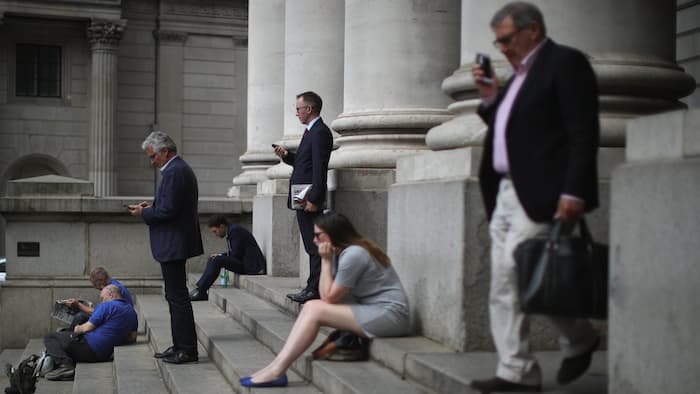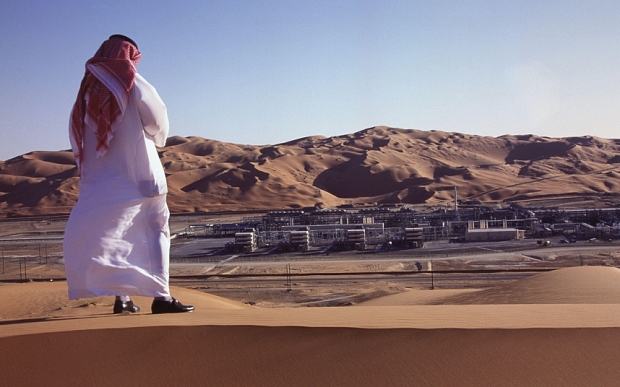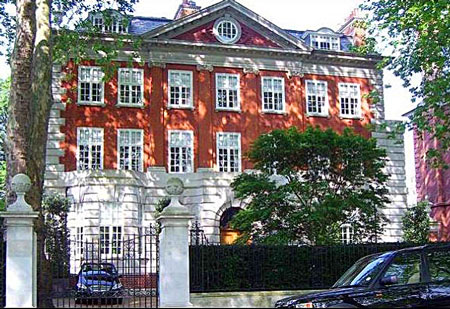Property Investment Update
01-23-2018
PropertyInvesting.net team
This article covers a general update on the investment outlook in the UK with Brexit and a potential Labour governments as the two key risks, that should keep house price inflation subdued for now.
Brexit: Now the divorce bill has been agreed in principle, the trade negotiations will start Q1 2018 and things appear to be settling down after all the Brexit political turmoil of 2017. We expect a further calming despite all the media hype and noise over Brexit as people get used to the idea of Britain finally exiting the European Union. We believe the chance of a U-turn is very remote mainly because the Tory party are keen on Brexit (70% voted Brexit), they were forced down the road by UKIP that then imploded and crucially the far left Labour party are in favour of Brexit (despite 68% of Labour supporters wanting to Remain) Corbyn represents the working classes who want to Brexit albeit he has not come out publi cly and admitted it yet. The bottom line is there are enough votes in favour of Brexit in Parliament to get the bills through and many MPs are worried about going against the so called will of the people.
cly and admitted it yet. The bottom line is there are enough votes in favour of Brexit in Parliament to get the bills through and many MPs are worried about going against the so called will of the people.
Negotiation Through Turmoil: If Britain can negotiate through the turmoil the outcome is likely to be quite a good solution in the longer term for the UK. Okay, we voted remain, but we can also understand why so many people motivated people turned up and voted Brexit. One of the key things to consider is do we want Brussels setting our laws, do we want border controls or not, and do we want further EU European integration over the longer term further erosion of democratic parliamentary powers seeded to an undemocratically appointed bunch of bureaucrats in Brussels.
Property: For property we expect short-medium term pain in the form of slightly higher  interest rates, lower GDP growth, jobs uncertainty and lower inward migration. But in the longer term, it could be that the UK attracts a lot of investment from growing global countries keen to use a more independent Britain as a spring board for their global businesses.
interest rates, lower GDP growth, jobs uncertainty and lower inward migration. But in the longer term, it could be that the UK attracts a lot of investment from growing global countries keen to use a more independent Britain as a spring board for their global businesses.
Positive Signs: In the last few weeks there are concrete signs that European governments are not so keen to clobber London and UK business they probably see the UK as a very important market and are not keen to loose this. Brexit is hugely political but essentially big business wants a smooth transition and thats probably what we will get if we ignore the media hype and noise and the political posturing.
Sterling: Sterling has recovered to more or less what it was against the dollar just before the Referendum albeit its still lagging the Euro by around 15% from June 2016 mainly because the Euro has strengthened against the dollar. This should ease inflationary pressures at least.
Oil Prices: a big concern for UK property investors is and should be the oil price. R ecall oil prices crashed from around $110/bbl in June 2014 to $28/bbl by Jan 2016. Since November they have recovered from around $50/bbl to over $70/bbl we are now into inflationary danger territory. OPEC are holding back around 1.7 million bbls from the market. Meanwhile the US oil production is rapidly rising again and should reach around 10 mln bbls/day in Feb 2018 then onwards to around 10.8 mln bbl/day by Feb 2019 which should make the US the biggest oil producer in the world even higher than Russias 10.8 mln bbls/day and Saudi Arabias 10 mln bbl/day (with Saudi keeping around 0.8 mln bbls/day off the market). Oil demand is forecast to rise by around 1.7 mln bbls/day in 2018 which is very healthy indeed as the global economy is booming at around 4% GDP growth per annum. Global oil production is around 100 mln bbls/day a colossal amount and rising at around 1.8% a year about half the GDP growth as normal.
ecall oil prices crashed from around $110/bbl in June 2014 to $28/bbl by Jan 2016. Since November they have recovered from around $50/bbl to over $70/bbl we are now into inflationary danger territory. OPEC are holding back around 1.7 million bbls from the market. Meanwhile the US oil production is rapidly rising again and should reach around 10 mln bbls/day in Feb 2018 then onwards to around 10.8 mln bbl/day by Feb 2019 which should make the US the biggest oil producer in the world even higher than Russias 10.8 mln bbls/day and Saudi Arabias 10 mln bbl/day (with Saudi keeping around 0.8 mln bbls/day off the market). Oil demand is forecast to rise by around 1.7 mln bbls/day in 2018 which is very healthy indeed as the global economy is booming at around 4% GDP growth per annum. Global oil production is around 100 mln bbls/day a colossal amount and rising at around 1.8% a year about half the GDP growth as normal.
Oil Supply Demand: In 2017 there was a lot of hype about electric car usage but this is not likely to save more than say 0.8 mln bbl/day by 2025 so its not really relevant at this time. Even though developed nations oil consumption is pretty static developing nations oil consumption is rising fast including China and India as their middle classes grow and yes they all want to drive large SUVs preferably 4 litre luxury SUVs. This trend is not likely to change there are 7 billion people and most would love to drive a big SUV and they dont make electric SUVs yet. So dont be surprized to see oil demand continuing to rise sharply. But essentially when oil prices rise above around $80/bbl the global economies will start to feel it and slow down. Oil prices are like a big tax on households and disposable income drops, inflation rises, growth drops and then unemployment starts to rise in all countries that import large quantities of oil which is most.
Oil Exporter to Gain: The economies that do the best when oil prices rise are Norway, USA, Russia, Saudi Arabia, UAE, Kuwait, Iraq, Iran, Oman, Canada, Brazil and Qatar. The countries that do the worst are oil intensive developed economies with weak manufacturing like Spain, Italy, Greece and Portugal. Germany can survive because it has strong manufacturing. The UK is partly protected since we produce around 50% of our oil-gas needs. France imports all its oil but has efficient electric nuclear generation to counteract the harm done by high oil prices. Holland uses huge quantities of oi l all imported but it does have a lot of indigenous gas production. Belgium imports all its oil and gas and is therefore also exposed.
l all imported but it does have a lot of indigenous gas production. Belgium imports all its oil and gas and is therefore also exposed.
PIGS: Now that oil prices have rocketed to $70/bbl expect Spain, Italy, Greece and Portugal economies to weaken with possible further Euro debt problems surfacing again. Ireland will also suffer since it has no significant oil production.
Trump Effect: When Trump got into power, he promised to revive the US jobs market and economy and put business first. The effect on US oil production is starting to feed through its rocketing upwards probably partly because of the confidence the Texan oil men have in the business friendly policies. GDP growth has gone from trend 2.5% to 4%. This will also help the global economy remember the US economy is around seven times the size of the UK economy and far larger than the EU economy. Whilst most people in Europe dont like Trump he was at least democratically  elected into power and his policies towards business and employment are likely to prove very popular in the longer term as the Americans get back to work and away from the higher tax, highly regulated environment of the Obama years. Obama seemed more interested in the environment than jobs. It again seems to prove the value of market business friendly policies that deliver far higher growth levels and valued employment. The next few years will test this theory. Its also worth noting that the US gas production is booming and this will offset coal usage and lead to less CO2 emissions the US will also start exporting large quantities of oil and gas that will help their balance of payments. The US economic outlook looks particularly bright under Trump helping along the US business investors and the oil industry.
elected into power and his policies towards business and employment are likely to prove very popular in the longer term as the Americans get back to work and away from the higher tax, highly regulated environment of the Obama years. Obama seemed more interested in the environment than jobs. It again seems to prove the value of market business friendly policies that deliver far higher growth levels and valued employment. The next few years will test this theory. Its also worth noting that the US gas production is booming and this will offset coal usage and lead to less CO2 emissions the US will also start exporting large quantities of oil and gas that will help their balance of payments. The US economic outlook looks particularly bright under Trump helping along the US business investors and the oil industry.
Inflation: There does seem to be an inflationary period setting in for the UK at least, and to a lesser extent globally. Oil prices are rising, Sterling has declined against the Euro and lack of investment with less inward migration are putting a lot of pressure on UK prices and should feed through into higher inflation in 2018. Dont be surprized to see inflation rising above 4% by the second half of 20 18 especially as the oil prices has doubled in the last few years up to $70/bbl. The oil price effect normally takes around 6 months to feed through and since it went up in December, expect the inflation spike arriving around June 2018. Years of excessive money printing are finally feeding through and this could cause the next big blow-off then recession just like it did in 2008. In 2008 it started with the oil prices skyrocketing in the lead up to the China Olympics and ended with financial meltdown end 2008. Ten years on, we could well see a similar type of boom-bust period and if this happens, then gold and silver will be good things to own. The perfect insurance policy also from a likely Bitcoin bust which is likely to be occurring as we speak. May be the bitcoin bust is the pre-curser to an overall financial meltdown similar to the Dot-Com bust of March 2000 or Lehman Brothers bust end 2008, we will see.
18 especially as the oil prices has doubled in the last few years up to $70/bbl. The oil price effect normally takes around 6 months to feed through and since it went up in December, expect the inflation spike arriving around June 2018. Years of excessive money printing are finally feeding through and this could cause the next big blow-off then recession just like it did in 2008. In 2008 it started with the oil prices skyrocketing in the lead up to the China Olympics and ended with financial meltdown end 2008. Ten years on, we could well see a similar type of boom-bust period and if this happens, then gold and silver will be good things to own. The perfect insurance policy also from a likely Bitcoin bust which is likely to be occurring as we speak. May be the bitcoin bust is the pre-curser to an overall financial meltdown similar to the Dot-Com bust of March 2000 or Lehman Brothers bust end 2008, we will see.
Property Investing Outlook: For property investors, expect property prices to drop slightly in London this year and increase slightly in areas further away from London as the ripple effect continues. London property prices are being adversely affected by high stamp duty, draconian buy-to-let taxes, taxes on second homes and of course Brexit uncertainties jobs fears. They are not likely to recover until some good trade deals are done and the Brexit situation settles down towards end 2019. However, as ever the biggest threat to property prices and property investors in totality is a Labour government. They would without doubt put huge new taxes on property, target buy-to-let landlords and precipitate a property price  crash. The chance of a Labour government in the next four years is regrettably very high around 50%. So canny property investors that believe Labour will get in are probably already selling up. The only consolation if Labour actually did get into power is that they would likely not survive more than four years since they are likely to make a monumental screw-up of the UK economy like they always do particularly a far left socialist Corbyn led government. All the people Corbyn has surrounded himself with are of similar mould so if Corbyn steps down, dont expect a moderate to take his place. Labour are now a far-left socialist opposition further left leaning than Michael Foots government and some of the worst 1970s socialist elements. If Labour win power expect to see high inflation, high interest rates, Sterling devalued, higher unemployment, higher social costs and benefits, and a worsening more inefficient and regulated public sector that would stifle the private sector with regulations and very high taxes. Nothing new with this synopsis. Yes the poor may feel a bit more wealthy for a few years but then the public sector would kill off the private sector and nothing would be left like Venezuela at the moment. Hence the biggest business risk to property investors is undoubtedly a Labour government. Nothing stands as a more powerful and negative business risk than this. To put it into perspective, we would rather have two Brexits than one Labour government. Hence the ultimate downside scenario is and has always been that Brexit leads to a Labour government then you can bet on a house price crash.
crash. The chance of a Labour government in the next four years is regrettably very high around 50%. So canny property investors that believe Labour will get in are probably already selling up. The only consolation if Labour actually did get into power is that they would likely not survive more than four years since they are likely to make a monumental screw-up of the UK economy like they always do particularly a far left socialist Corbyn led government. All the people Corbyn has surrounded himself with are of similar mould so if Corbyn steps down, dont expect a moderate to take his place. Labour are now a far-left socialist opposition further left leaning than Michael Foots government and some of the worst 1970s socialist elements. If Labour win power expect to see high inflation, high interest rates, Sterling devalued, higher unemployment, higher social costs and benefits, and a worsening more inefficient and regulated public sector that would stifle the private sector with regulations and very high taxes. Nothing new with this synopsis. Yes the poor may feel a bit more wealthy for a few years but then the public sector would kill off the private sector and nothing would be left like Venezuela at the moment. Hence the biggest business risk to property investors is undoubtedly a Labour government. Nothing stands as a more powerful and negative business risk than this. To put it into perspective, we would rather have two Brexits than one Labour government. Hence the ultimate downside scenario is and has always been that Brexit leads to a Labour government then you can bet on a house price crash.
We hope his Newsletter has given you some interesting insights and helped frame your property investment decisions for 2018. If you have any queries, please contact us on
enquiries@propertyinvesting.net
